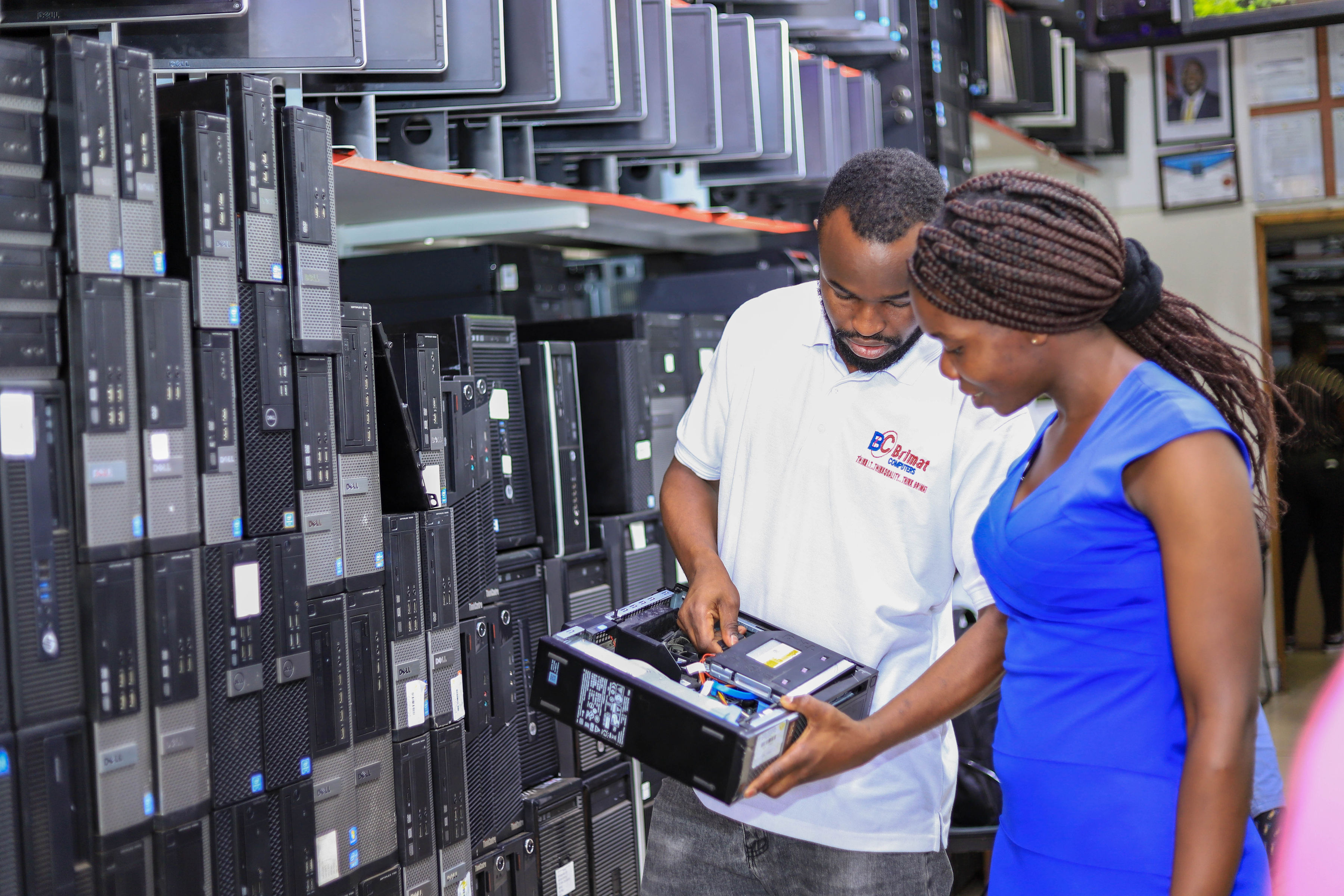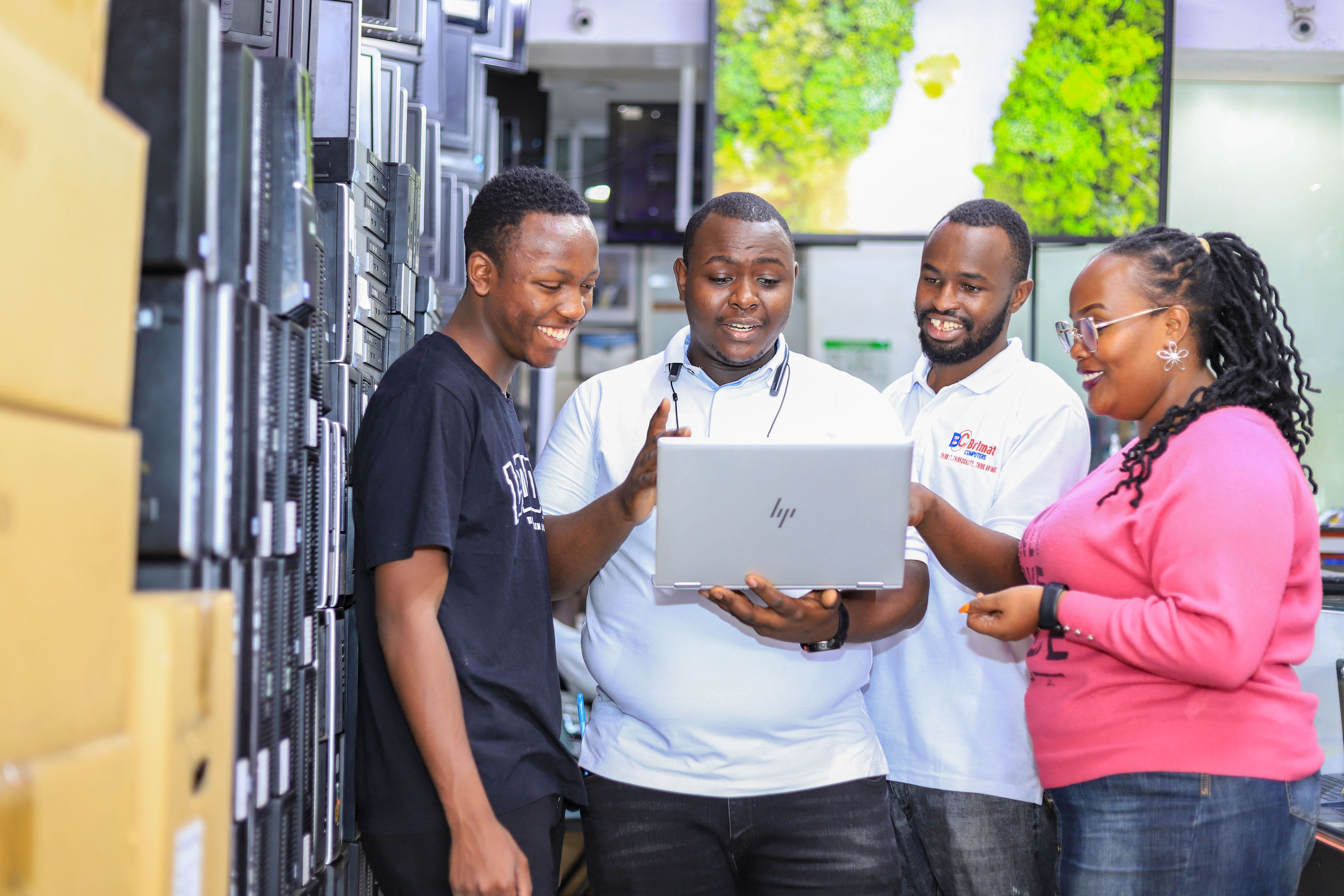
Driving Innovation: Find out more about our Foundation
SFL(K) is a registered Non-Governmental Organisation (NGO) in Kenya advancing bridging of digital divide in Kenya through advancement of science, technology, engineering and math (STEM) education in Africa. Through this, STEM FOR LIFE KENYA empowers future generations with essential technology skills, fostering innovation and sustainable development across Africa as well as spurring inventions and invention-based entrepreneurships.
Driving Innovation: Discover Our Foundation
- Our Vision
Our vision is to empower generations of African inventors and STEMprenuers in order to create a better world. -
Our Mission
Our Mission is to run programs that bridge the digital divide in Africa in order to increase the number of STEM graduates to become inventors and change the continent through solutions and innovations that will help solve the continents’ problems, find cures to diseases, and invent machines that will take Africa to the future. - Our Picture Of Success
Our picture of success is a better world, made possible through application of scientific and technological innovations.

Blending STEM with curriculum learning
At STEM for Life Kenya Foundation, we take STEM education to the next level by seamlessly integrating it with the traditional curriculum, providing students with a unique and enriching blended learning experience. What sets SFL apart from conventional science and math education is our commitment to showcasing how the scientific method can be applied to real-life situations, making learning relevant and impactful.
Lower Primary School:
In the lower primary school phase, our focus is on introducing students to the world of STEM through engaging non-curriculum learning. We promote awareness of STEM courses and fields, opening young minds to the wonders of science, technology, engineering, and math. By fostering curiosity and excitement at an early age, we lay the foundation for a lifelong journey of exploration and learning.
Upper Primary School:
As students progress to upper primary school, the engagement with STEM becomes more rigorous and challenging. We continue to prioritize the awareness of STEM fields and occupations, while also nurturing a deeper understanding of the academic requirements of these fields. Through hands-on activities and projects, students gain valuable skills and develop a problem-solving mindset, preparing them for the possibilities that lie ahead.
High School:
In the high school phase, our program of study takes a focused approach, emphasizing the practical application of STEM subjects in a challenging and rigorous manner. We empower students to think critically and creatively, equipping them with the tools to tackle complex problems and drive innovation. By nurturing a passion for STEM, we prepare the next generation of leaders and visionaries who can shape a better world.
The Problem
There exists a disparity in access, skills, knowledge and ability to use Information, Communication and Technologies (ICTs) to participate in information economy between groups and individuals in Africa which renders unequal and disproportionate opportunities to the disadvantaged groups. In the last 57 years, a lot of effort has been put in promoting education in Africa, yet only 3 out of every 100 students graduate from college with STEM degrees. There are several factors that contribute to digital divide in Africa. Among them is Lack of ICT skills and support; Lack of physical access to Information & telecommunication infrastructure; Negative cultural and behavioural attitude towards technology and STEM learning. Despite all these, Africa continues to face challenges in food security, energy and conflicts caused by scarce resources. Despite the investment in education the continent continues to rely on social cultural solutions to these challenges.
Specific Problems
Lack of ICT Skills and Support:
Communities living in far flung and remote areas lack trainers skilled in computing and technology skills. These communities are often precluded from accessing latest technology information and knowledge thus leading to widening digital divide from counterparts in urban areas.
Lack of Physical Access to ICT Infrastructure:
Lack of Technology tools is impacting STEM subjects engagement and technology accessibility among underserved communities in Africa, mainly due to cost of computers (hardware and software), poor internet penetration & inaccessibility to electricity. STEM Tech Kitting which includes basic tech equipment, skills and knowledge has been identified as an opportunity for fostering a deeper understanding of STEM subjects through hands-on exploration and experimentation.
Cultural and Behavioural Attitude towards STEM:
Gender, physical disability and age segregations are some of the cultural attitudes that continue to expand the digital divide among many communities in Africa. Communities that disadvantage girls’ education ultimately disenfranchise the girl child from accessing technology opportunities. This causes a ‘difficult subject’ attitude towards sciences to spread among generations. Inadequate policies on STEM education, lack of ‘fun’ activities as well as a weak teaching resource capacity have perpetuated this attitude problem towards technology explosion in Africa. There are only 35% of female students enrolled in STEM-related fields worldwide. In Sub-Saharan Africa, on 30% of science researchers are.
Solution
Africa needs to invest more in scientific and technological solutions to myriad of problems facing the continent.
Our approach to the Solution
SFL(K) Foundation purposes to mobilise 1million Information, Communication and Technology (ICT) devices, Upskill STEM Trainers and carry out advocacy programs that address negative attitude towards technology.
Objectives of Our Programmes
(1) Kitstudents,Teachers,instructorsandtrainerswithcomputersand laptops through our STEMforLIFE #1mDevicesKE program;
1. Computer donations Computer funding
2. Wi-Fi
3. Computer labs
(2) ExpandaccesstoSTEMandTechknowledge,practicalskillsandtoolsto underserved and marginalised communities in Kenya and East Africa; Create awareness and interest in STEM among schools in East Africa by introducing more interactive learning and innovative teaching methods; Empower teachers, instructors and trainers with requisite STEM (with focus on tech) knowledge and practical skills to effectively impart the learners through our STEMforLIFE #DigiAfrica Training;
1. OnlineTrainings
2. Onlinebookproject
3. E-library.
(3) Addressculturalbarriers,createawarenessandinterestinSTEMinEast Africa targeting parents, gender divide, age barrier and students through our STEMforLIFE #BeyondTheCeiling campaign;
1. StemCareerGuides
2. StemforlifeClub
3. Innovationcompetition
4. SponsorshipsandScholarships
Every success story we encounter reinforces our belief in the immense potential of Africa's youth and their ability to shape a brighter future.
LONG-TERM IMPACT
SFL-K will serve as a model for innovative thinking and action nationwide. We shall build awareness, grow demand, and align resources to enable our children get careers that will solve world problems, find cures to diseases, and invent machines that will take us to the future.
The journey ahead is filled with boundless opportunities, and we are determined to expand our reach and deepen our impact. Through continuous assessment and feedback, we adapt and refine our programs to align with the evolving needs of our communities. Together with the support of generous donors and strategic partnerships, we strive to create a sustainable legacy of transformation, paving the way for future generations to thrive.
Be a ChangemakerGoals & Targets:
In order accelerate innovation in Africa, we shall focus on using our foundation to bridge the digital divide through the following three (3) pillars:
- STEMforLIFE #1millionDevicesKE which is our campaign to ensure we supply 1m devices in EA;
- STEMforLIFE#DigiAfricaTraining whichadigitalliteracytrainingand upskilling program targeting STEM teachers and trainers;
- STEMforLIFE#BeyondTheCeiling Campaignwhichisouroutreach program to address cultural barriers towards STEM targeting parents, gender divide, age barrier and campuses

Contact Us
Address
P.O Box 102811-00101
Nairobi
Kenya
